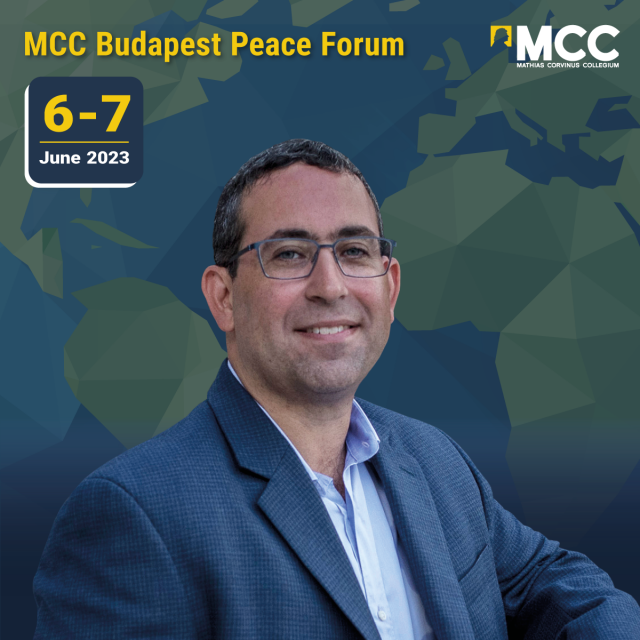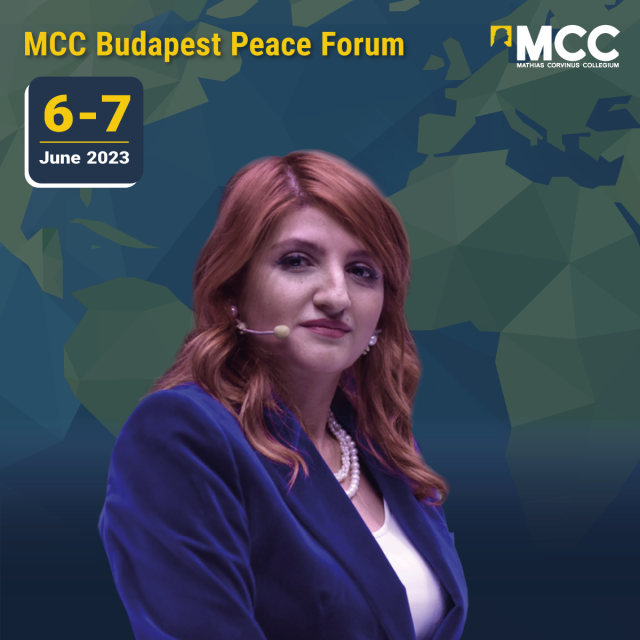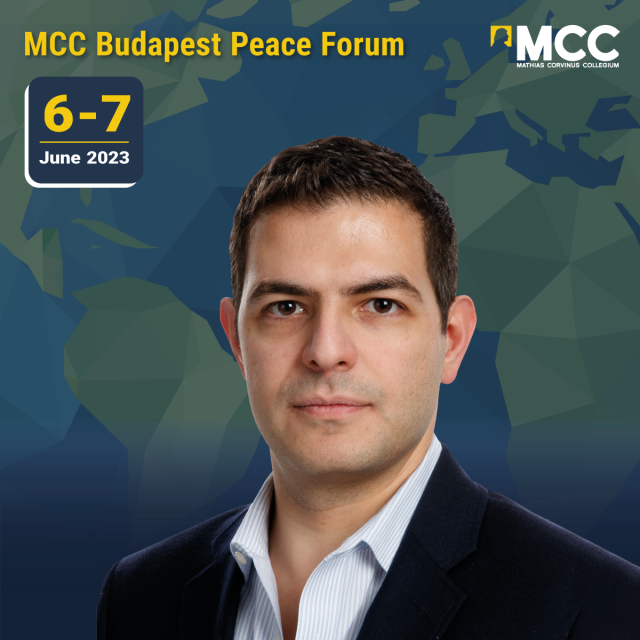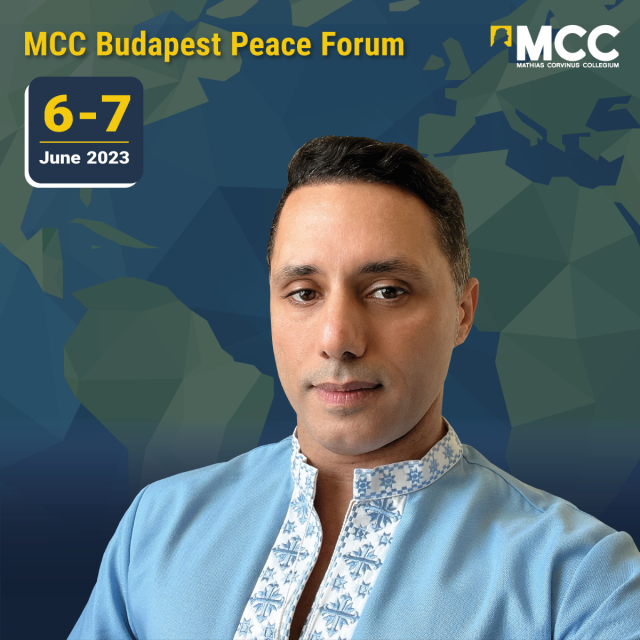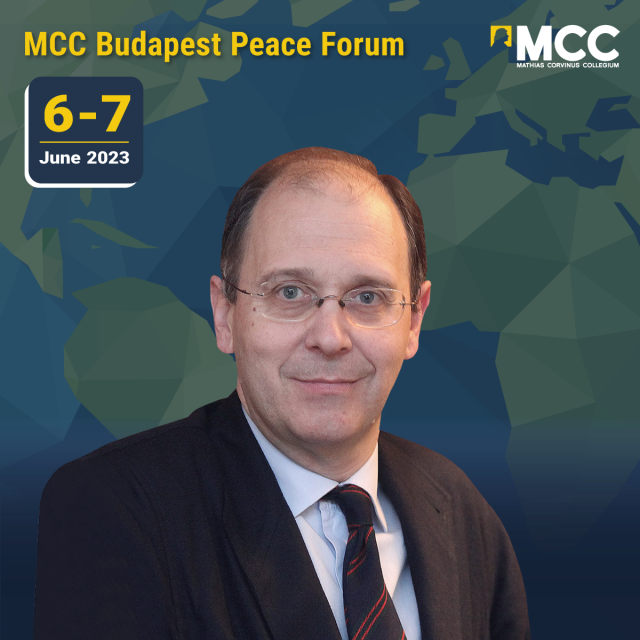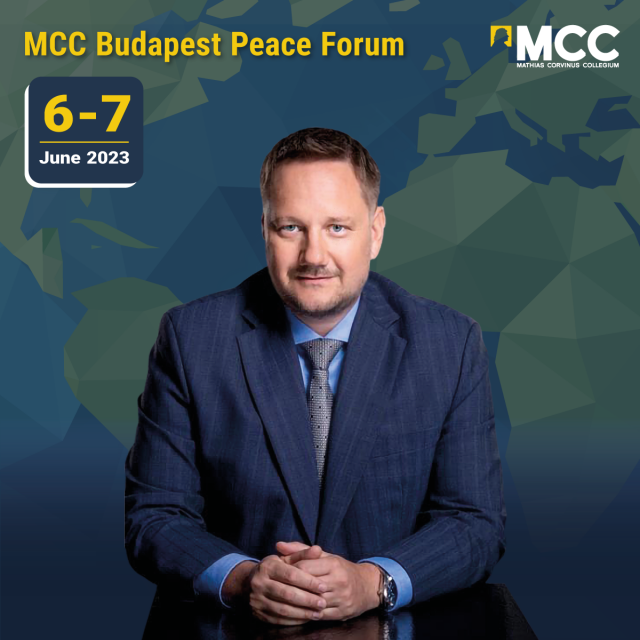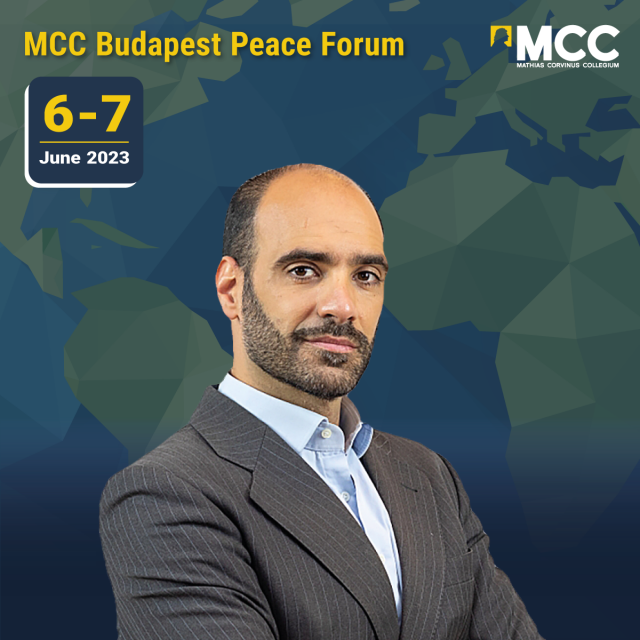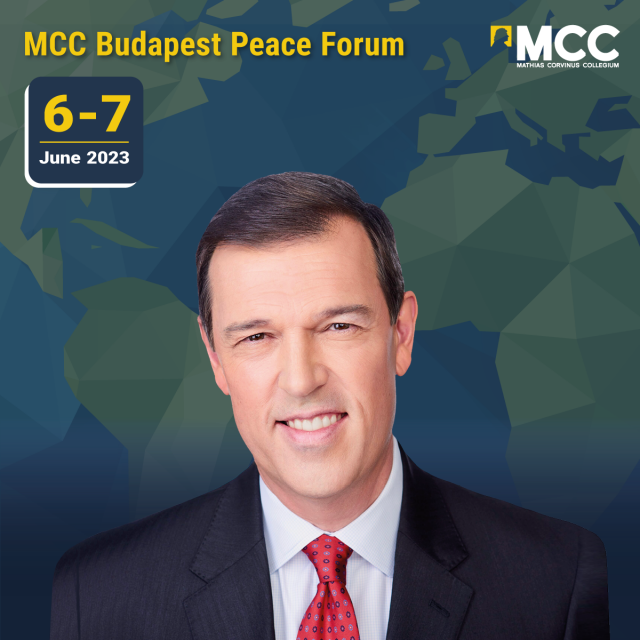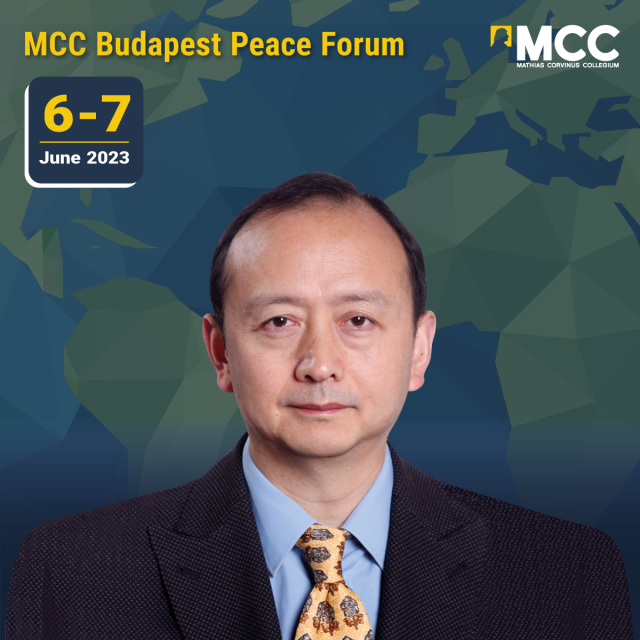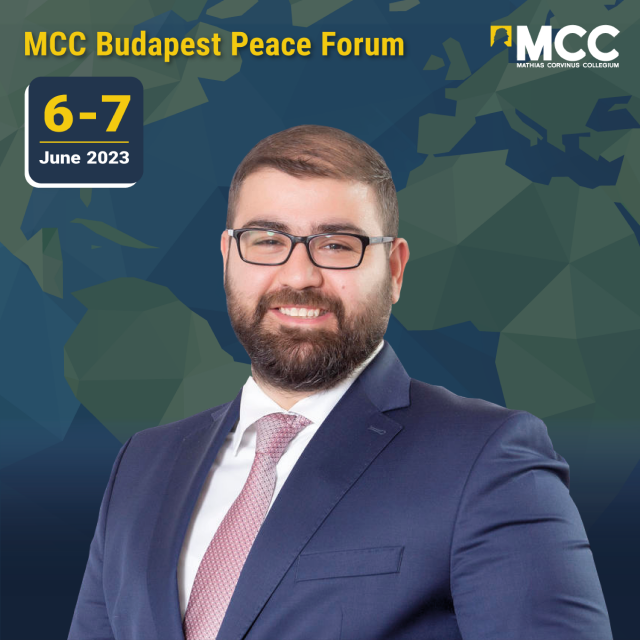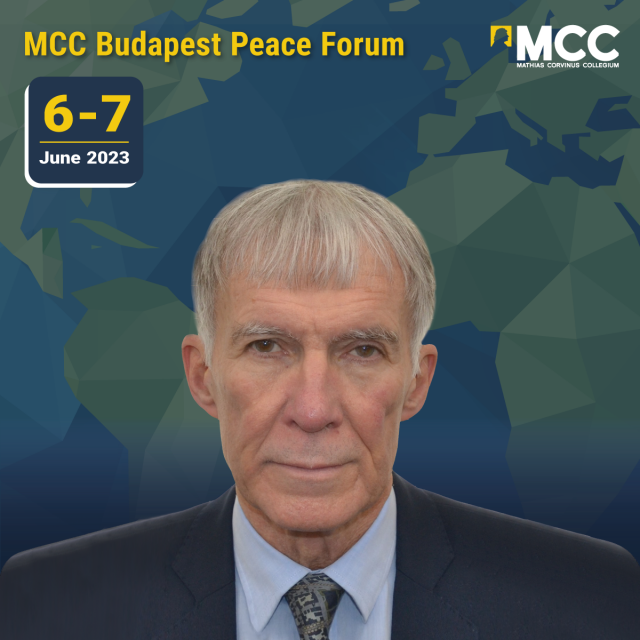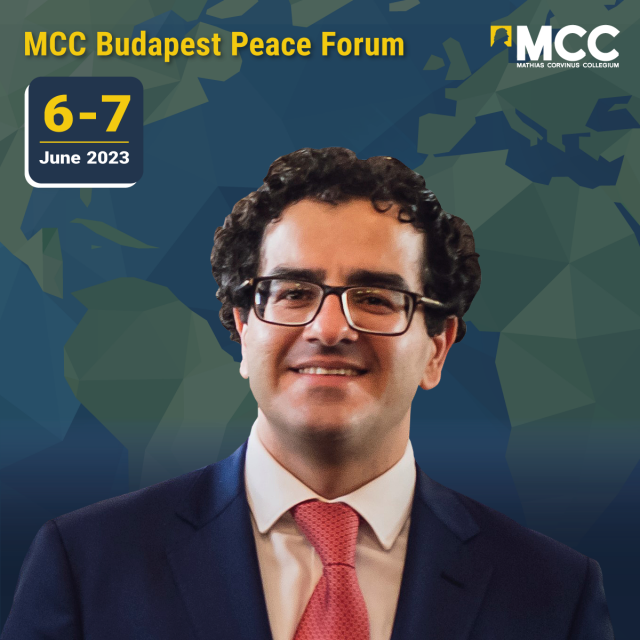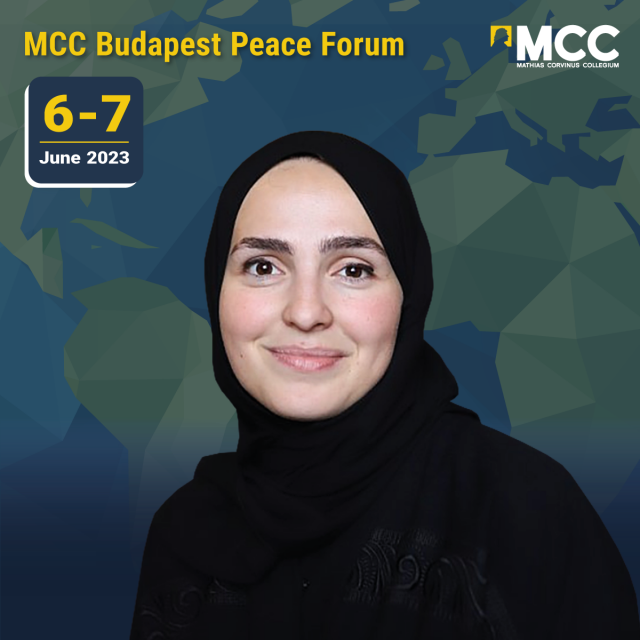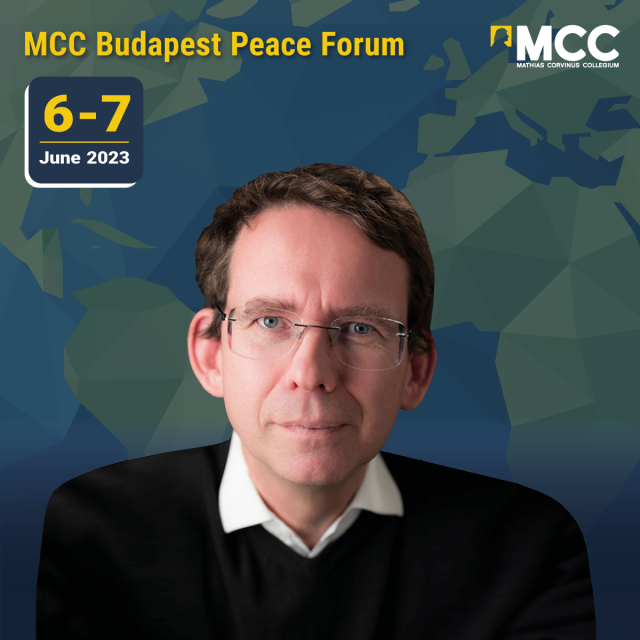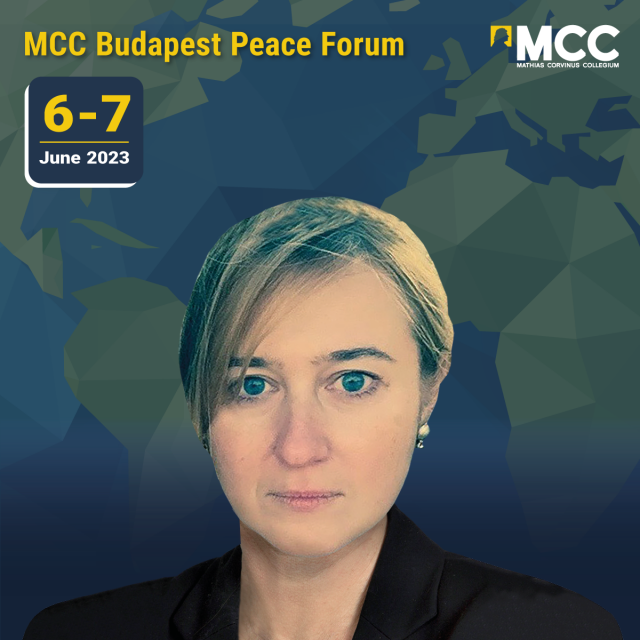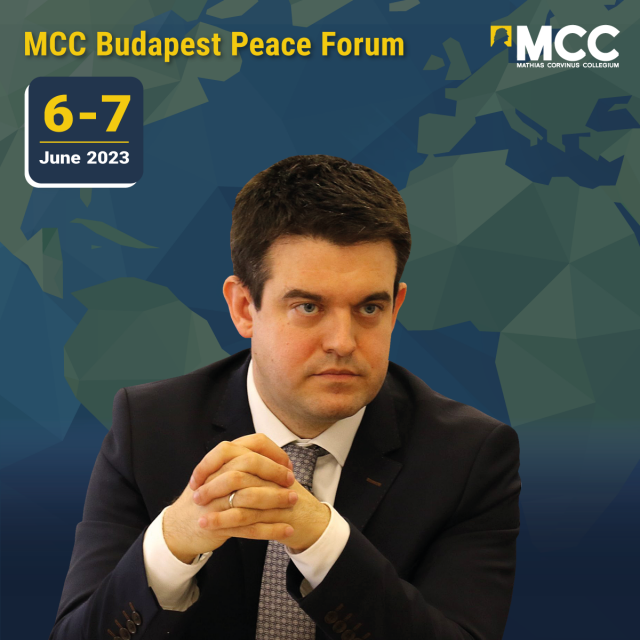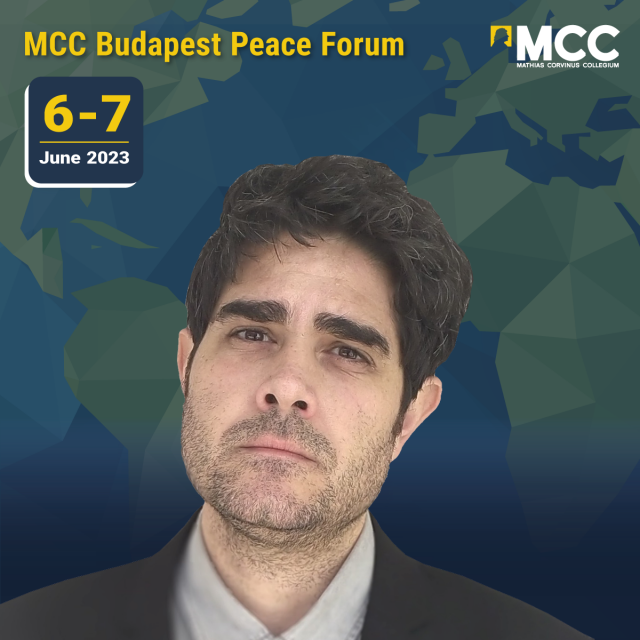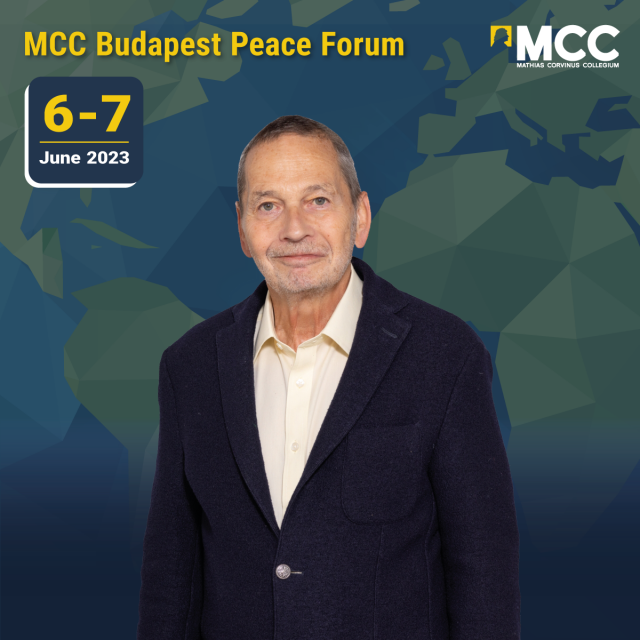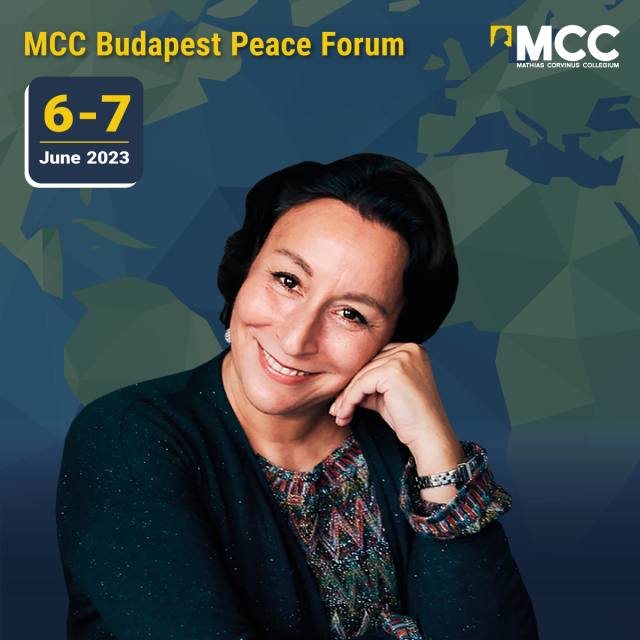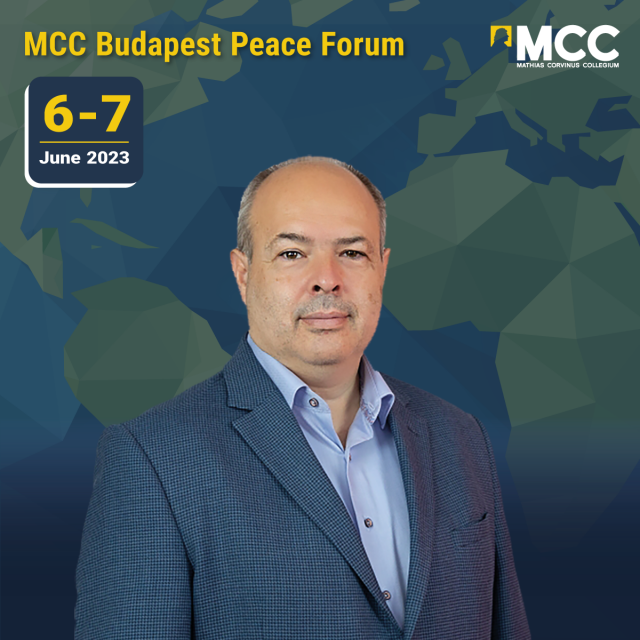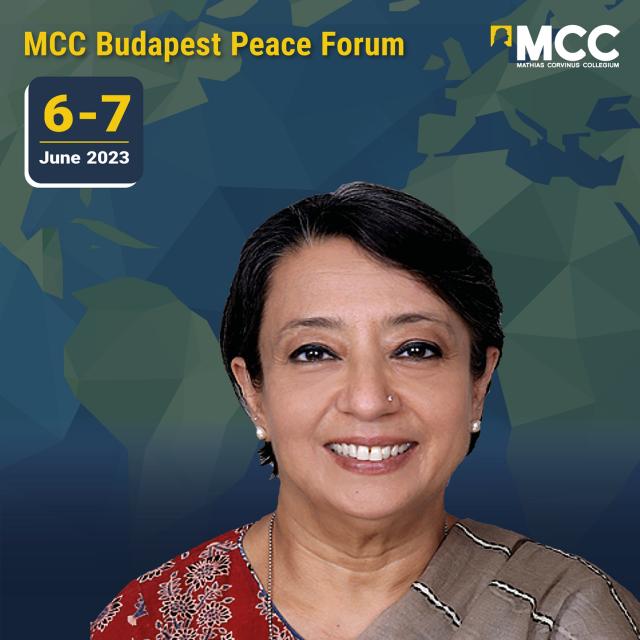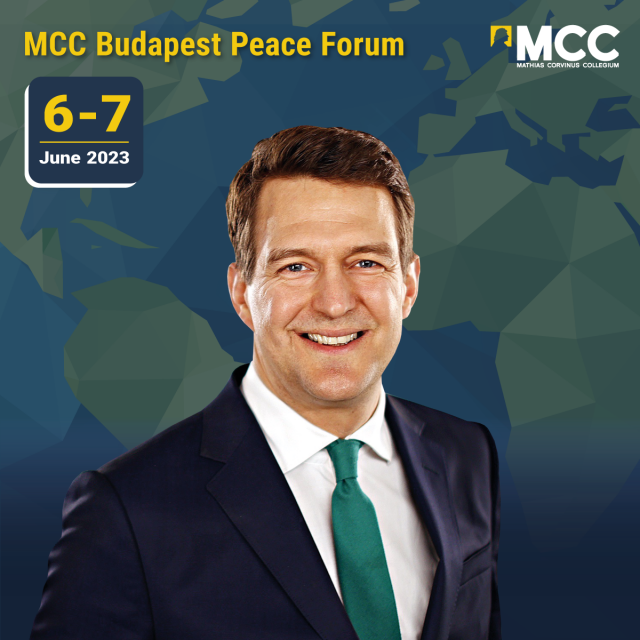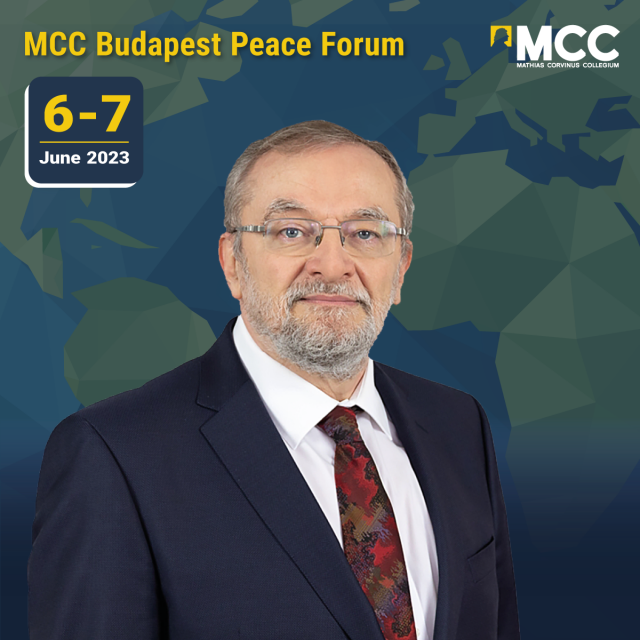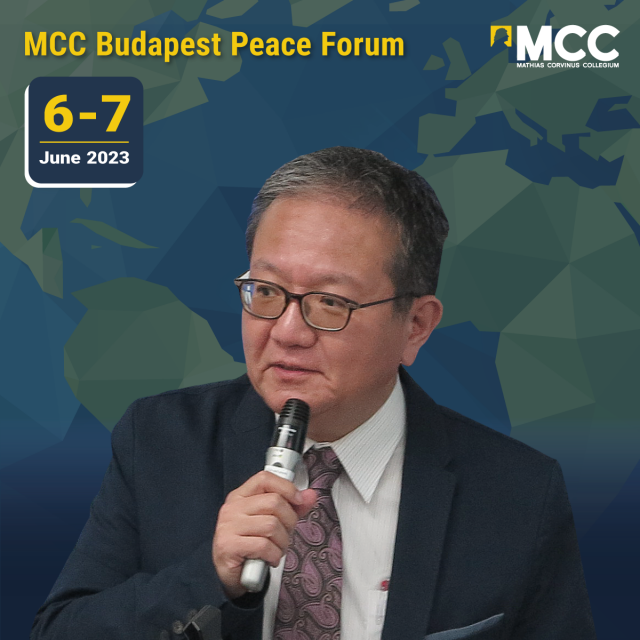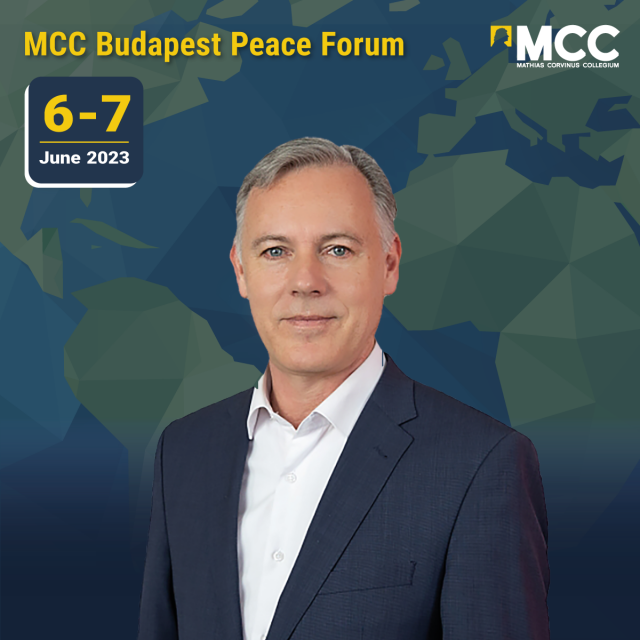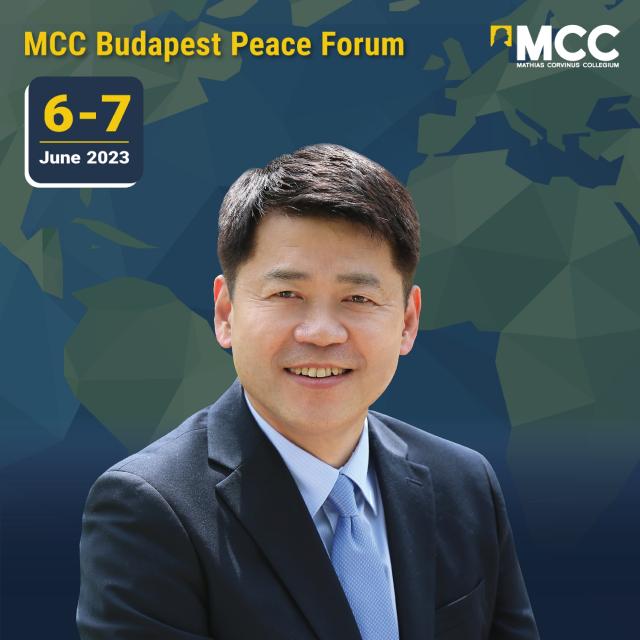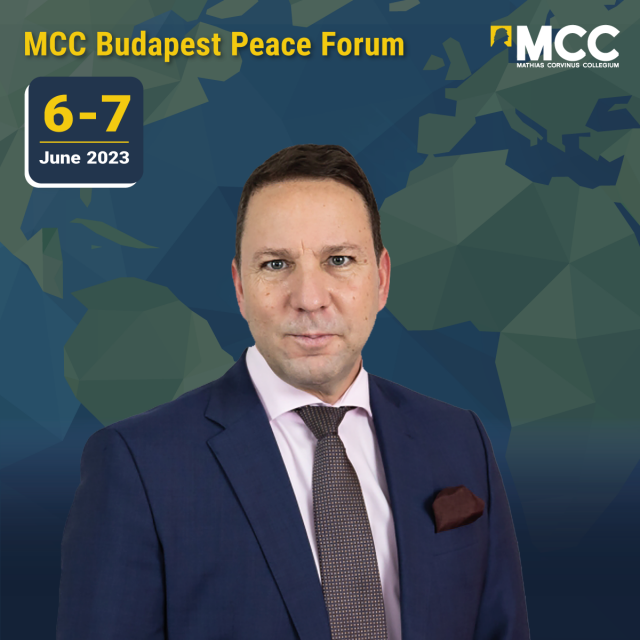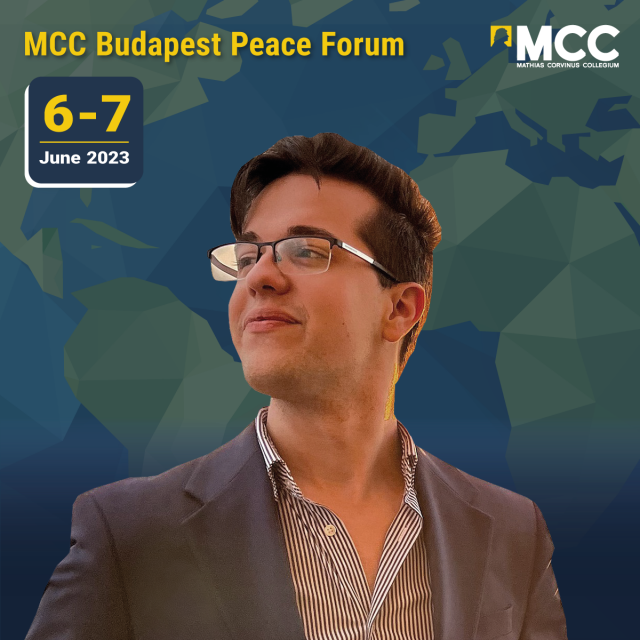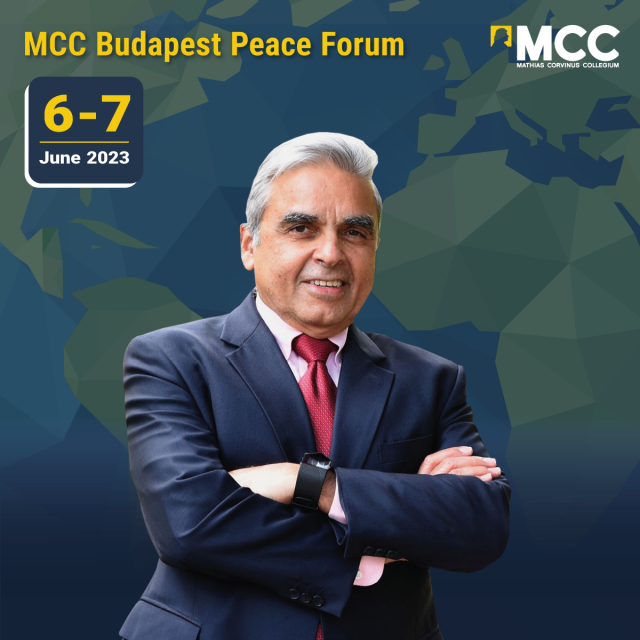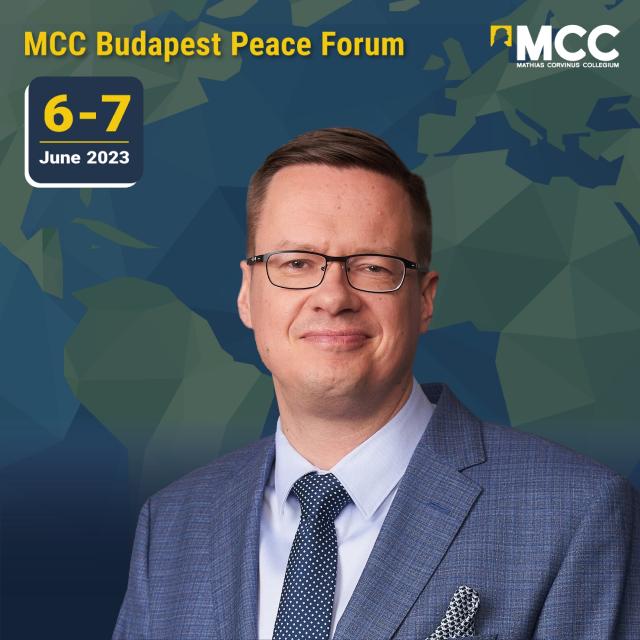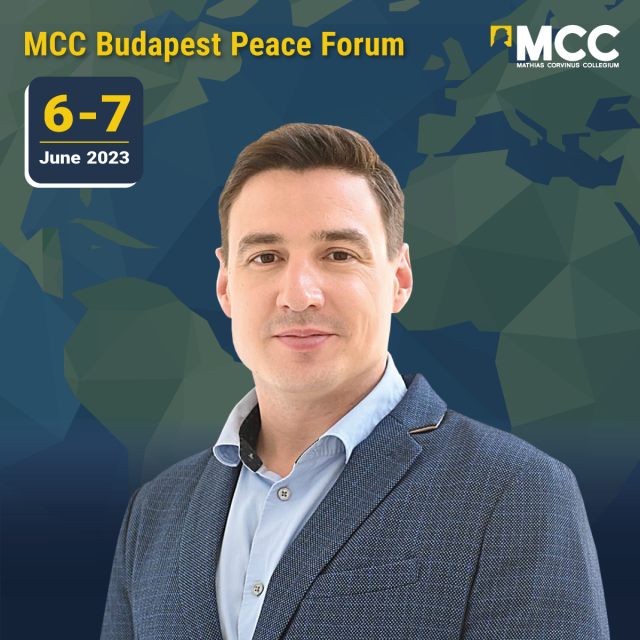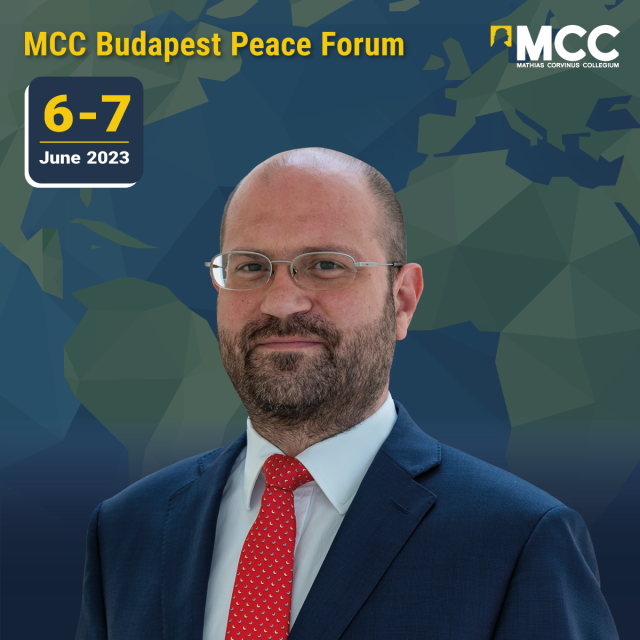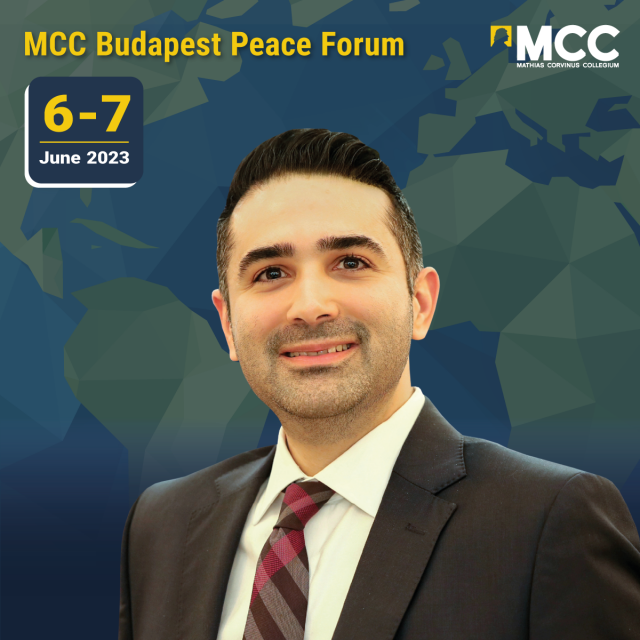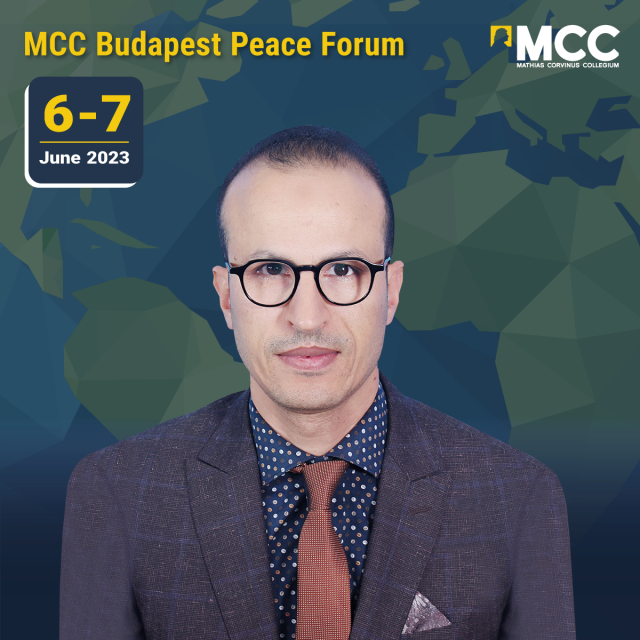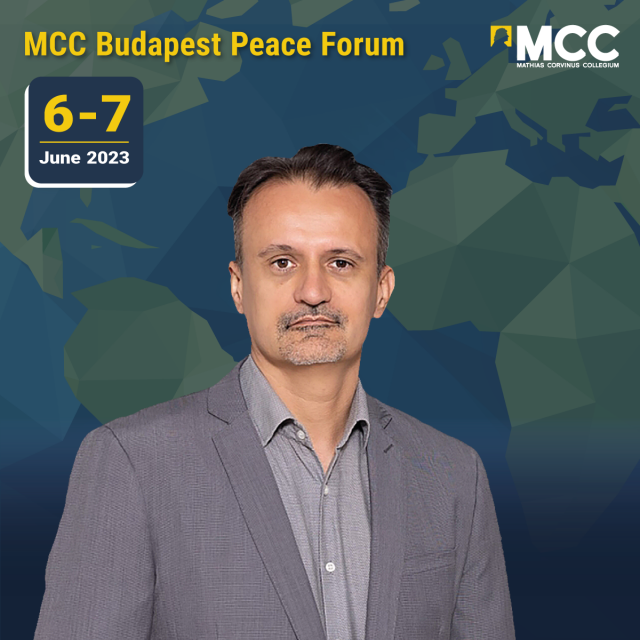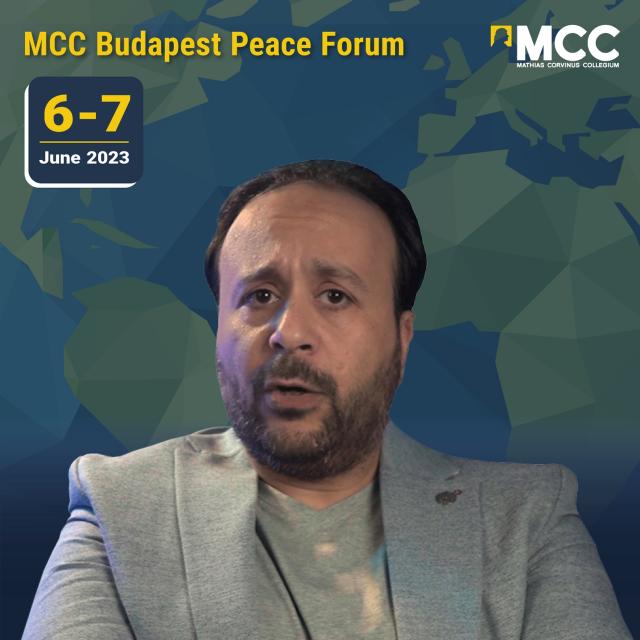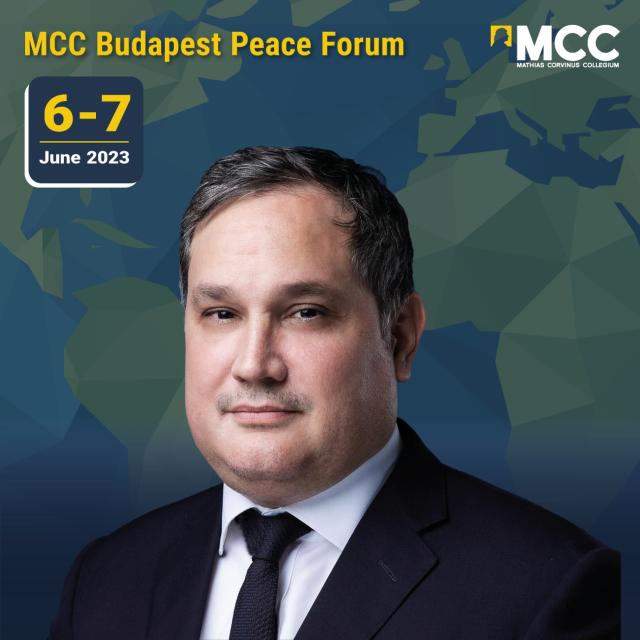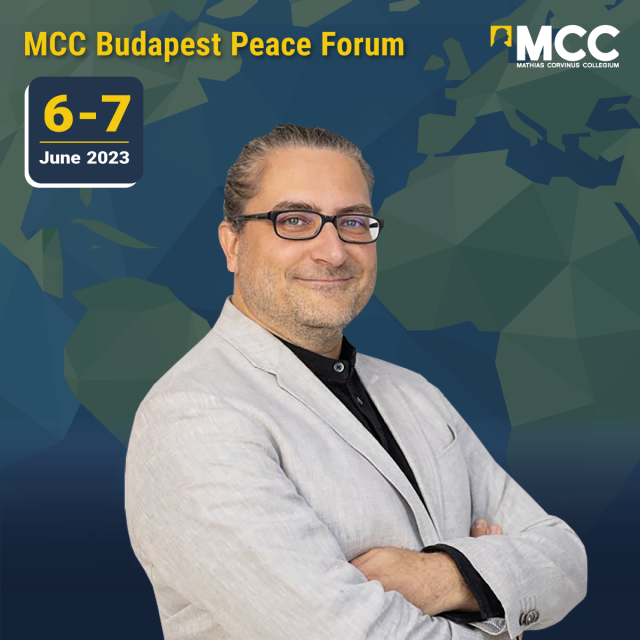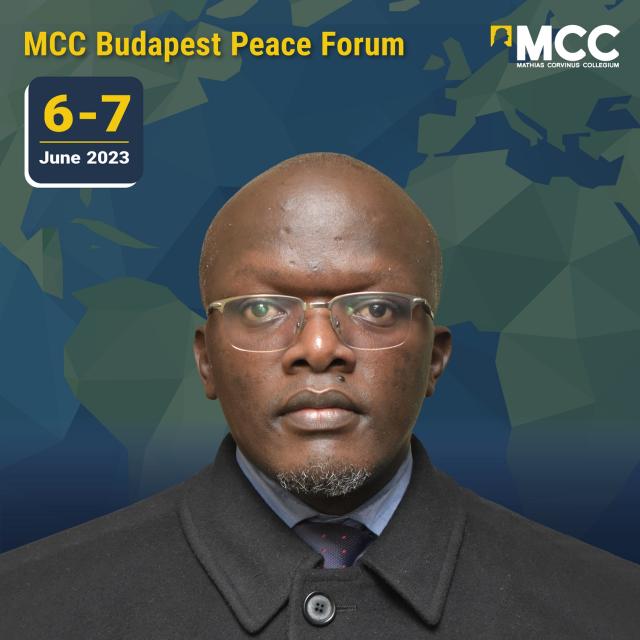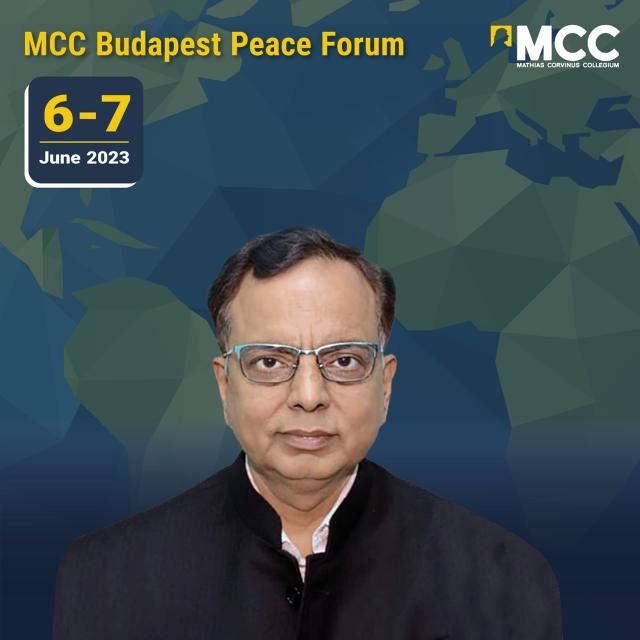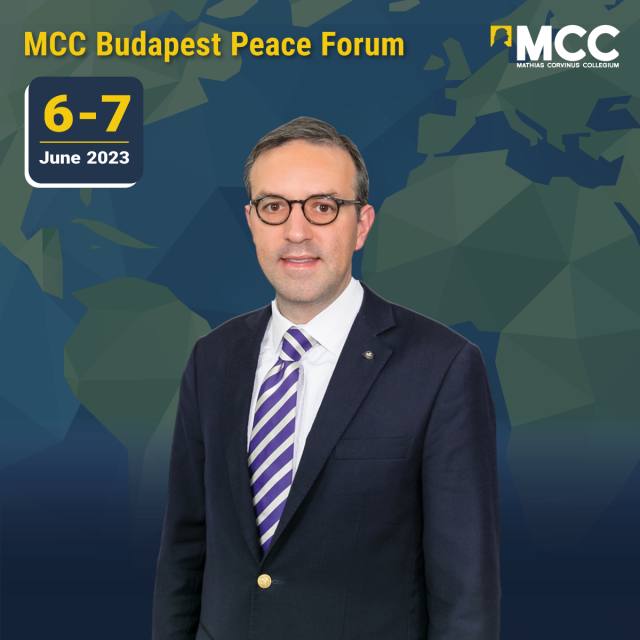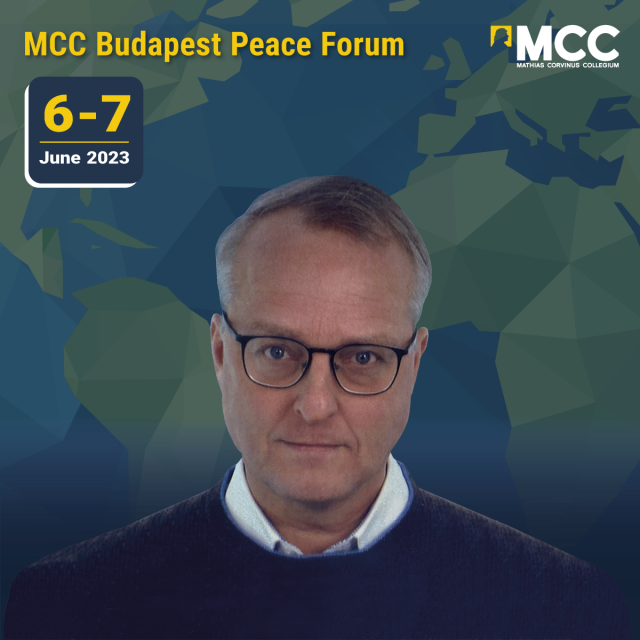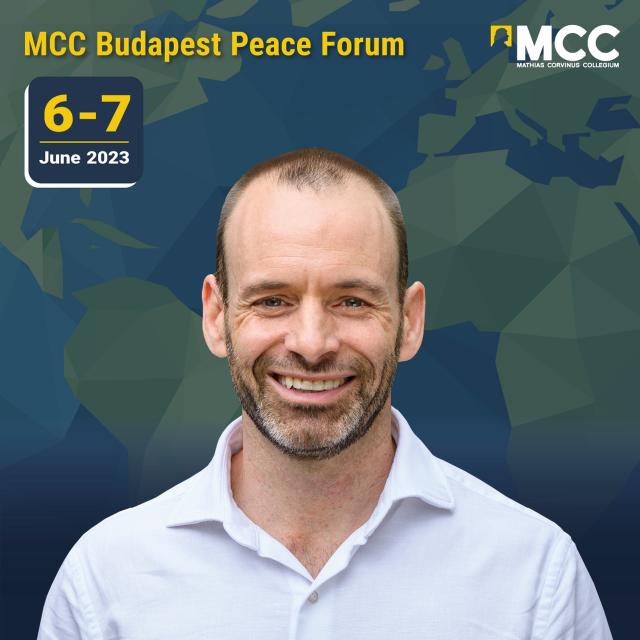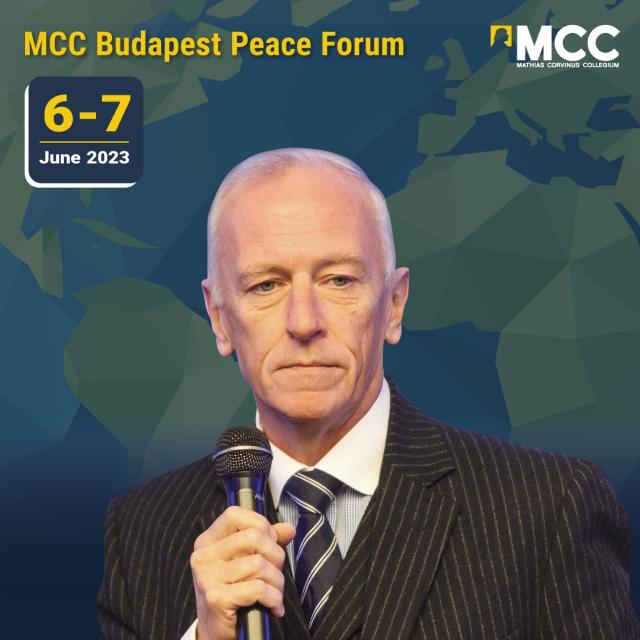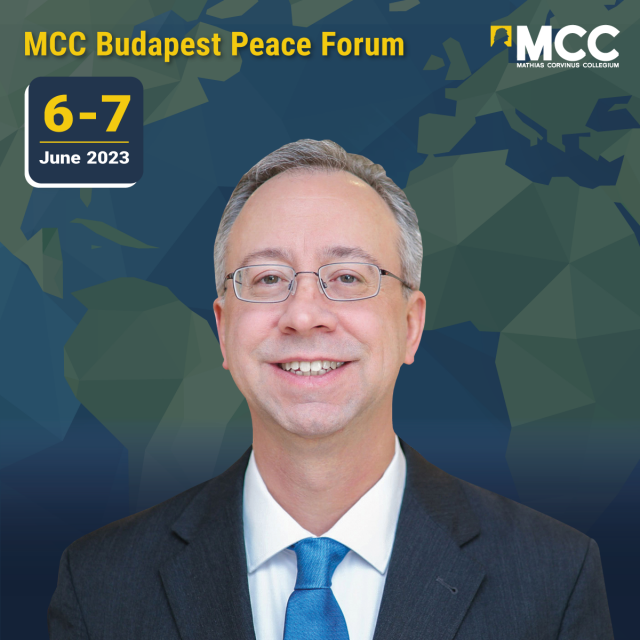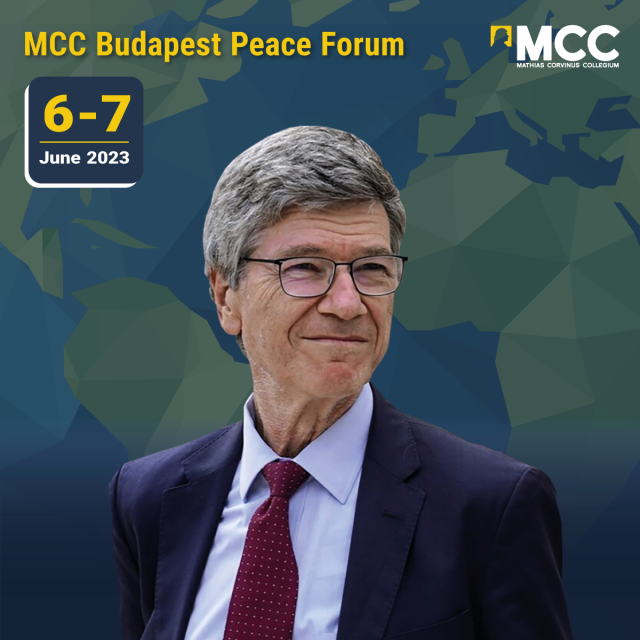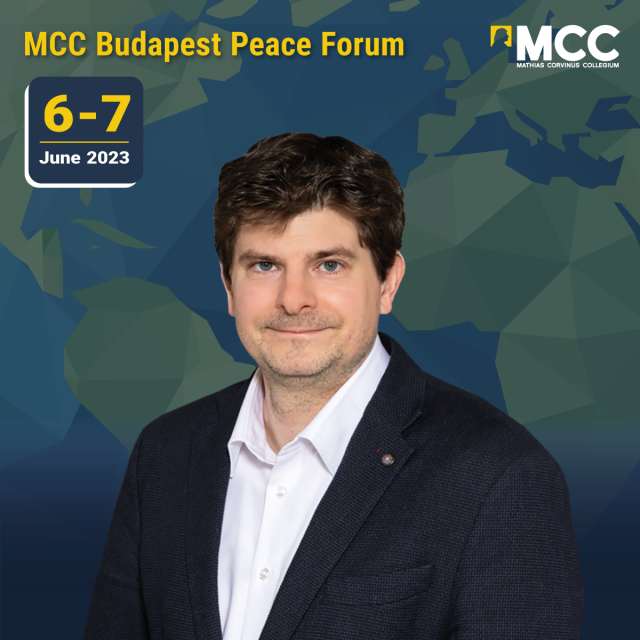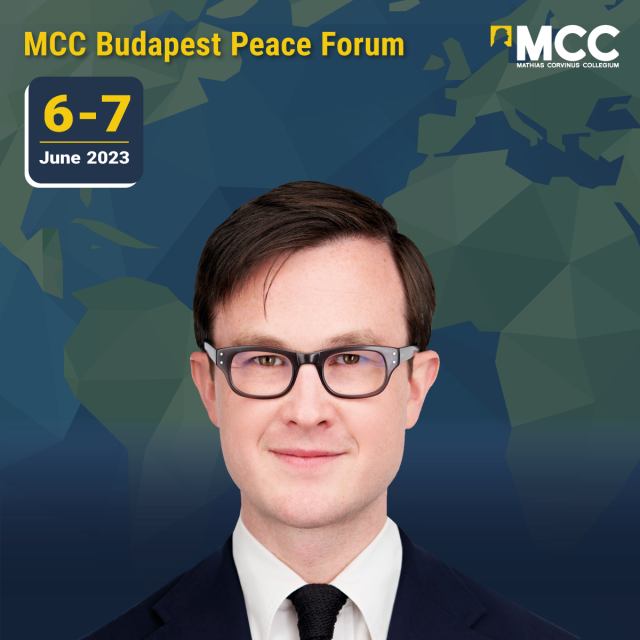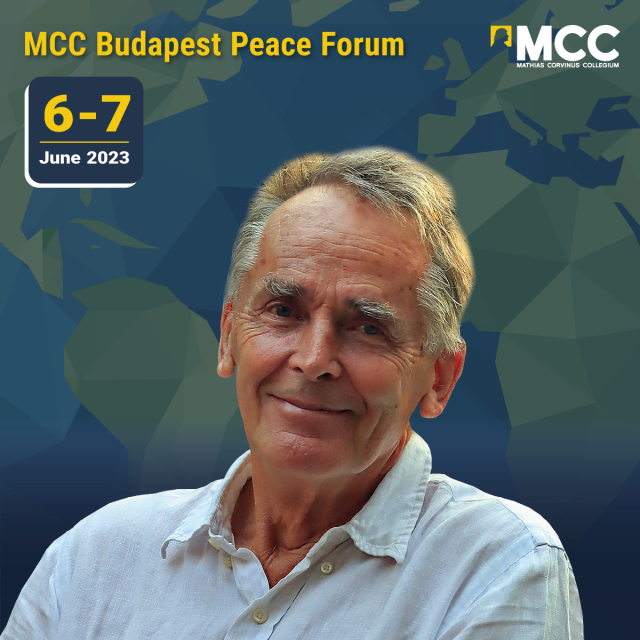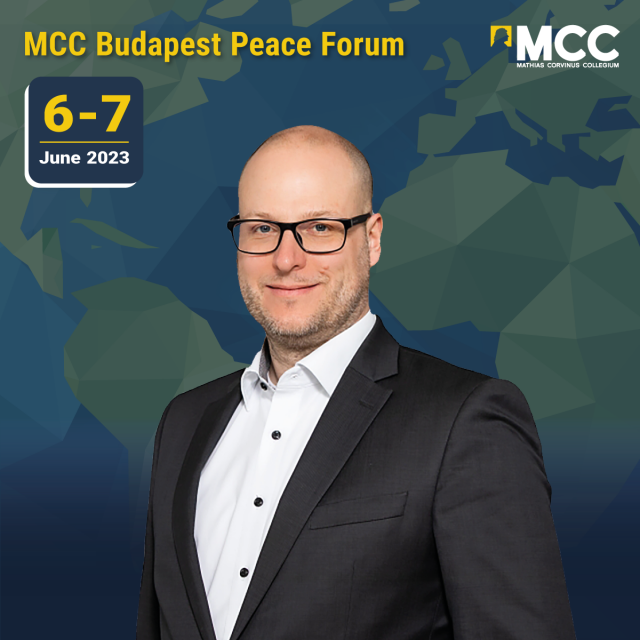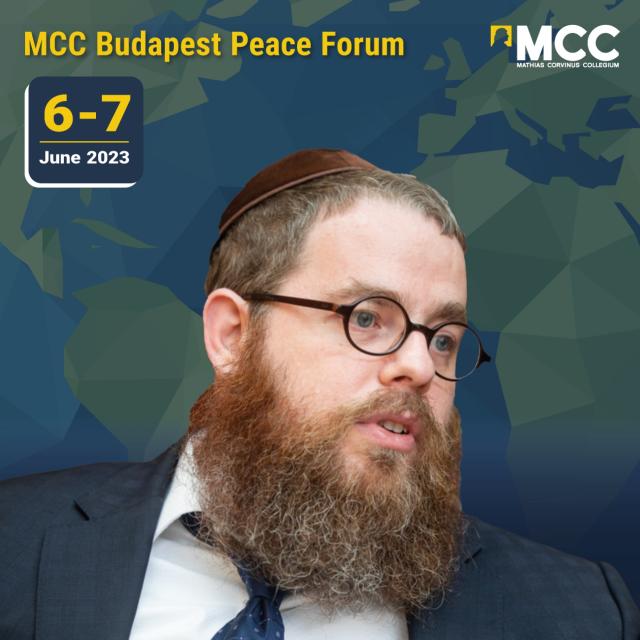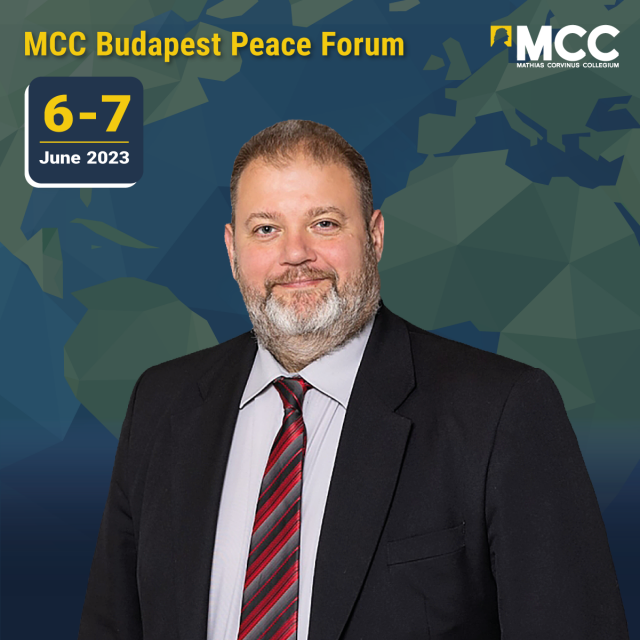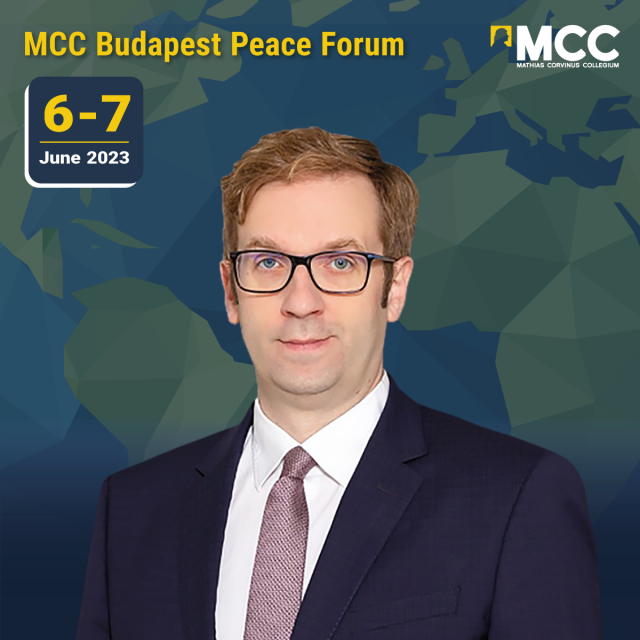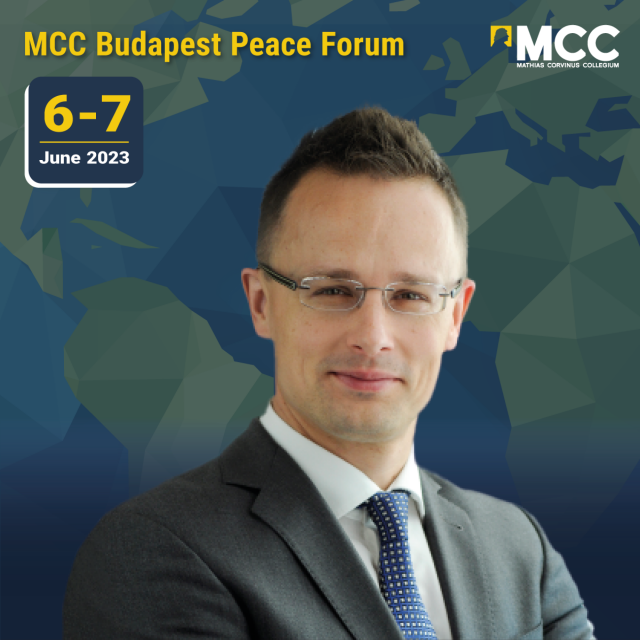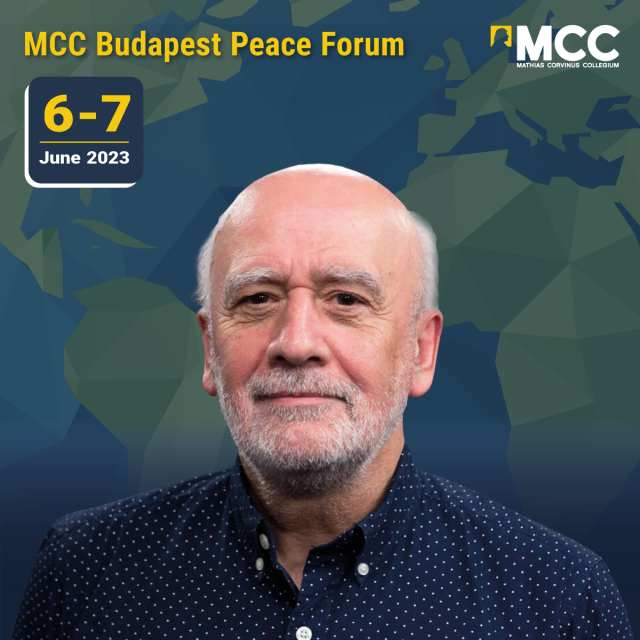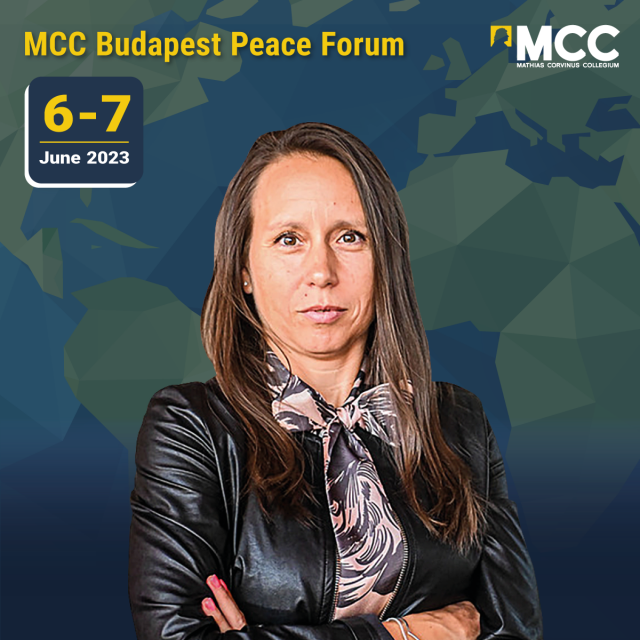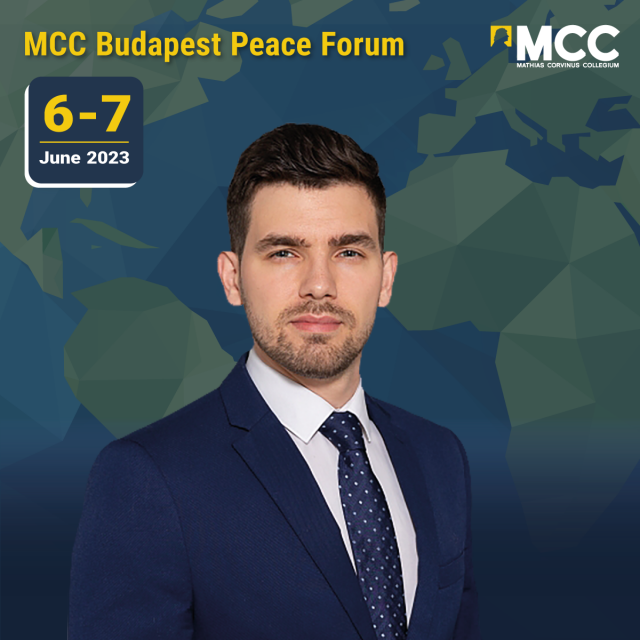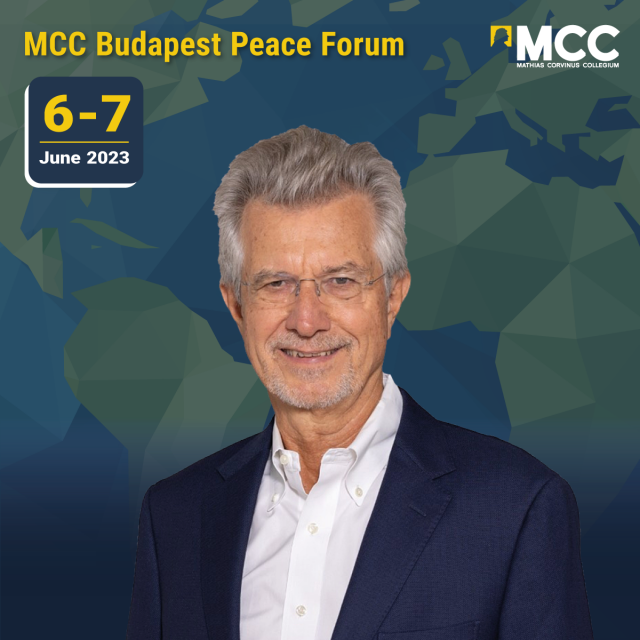June 5, Monday
MCC Budapest Lectures: How to End the War?
- George Beebe, Director of Grand Strategy, Quincy Institute
- Moderator: Rajmund Kiss, Head of the Center for Diplomacy, MCC
June 6, Tuesday
Arrival of Guests
Welcome: Dr. Zoltán Szalai, Director General, MCC
Keynote Speech: Péter Szijjártó, Minister of Foreign Affairs and Trade, Hungary
Panel I. Building a Path to Peace: A Global Perspective
We must make it clear that the global majority of the world wants peace. The war is the main issue of Europe today, and this was presenting Hungary with a difficult situation. The impacts of the war are severe and direct; inflation is sky-high, while energy prices are at a historical high. These pressing issues make it clear why the war needs to have a final end.
- Omar Ashour, Professor, Doha Institue for Graduate Studies
- Riva Ganguly, Former Secretary in the Ministry of External Affairs, Government of India
- Kishore Mahbubani, Former President, UN Security Council
- Jeffrey Sachs, Director of the Center for Sustainable Development, Columbia University
- Frank Füredi, Executive Director, MCC Brussels Center
- Moderator: Rodrigo Ballester, Head of the Center for European Studies, MCC
Panel II. How Will the War Reshape Our World
Some say we are looking ahead of the newest frozen conflict of the World; some argue a nuclear apocalypse awaits us. What are the scenarios for how this war could conclude and the alternative geopolitical futures that might result? Is it going to transform international relations over the course of the next two to three years?
- Caroline Galacteros, Chairwoman, GEOPRAGMA
- Mohammed Ahmed Gain, President, African Institute for Peacebuilding and Conflict Transformation
- William Ruger, President, American Institute for Economic Research
- Michael von der Schulenburg, Former Senior German Diplomat, United Nations; Organization for Security and Cooperation in Europe
- Moderator: Sándor Gallai, Head of School of Social Sciences and History, MCC
Lunch Break
Panel III. Diplomacy in Armed Conflicts
Diplomacy has solved conflicts, prevented deaths and economic turmoil, and secured peace. Think negotiation doesn’t work? Diplomacy builds and tends the coalitions that deter or make war. It disrupts the alliances of enemies and sustains the passivity of potentially hostile powers. It contrives war's termination, and it forms, strengthens, and sustains the peace that follows conflict. What is the role of diplomacy in war?
- Suay Nilhan Acikalin, Vice Director, Ankara Haci Bayram Veli University
- Betul Dogan Akkas, Researcher, Durham University; Qatar University
- Joon Hyung Kim, Professor of International Politics, Handong Global University
- Balázs Mártonffy, Director, Institute for American Studies at NKE
- Arta Moeini, Director of Research, Institute for Peace & Diplomacy
- Moderator: Rajmund Kiss, Head of the Center for Diplomacy, MCC
Panel IV. How to Talk About the Possibilities of Peace
The Western mainstream discourse on the war in Ukraine became more than one-sided: the Manichean approach to the events led to extreme polarization within the West. We have forgotten the traditions of civilized debate, and the principle of agreeing to disagree has vanished from about 95 percent of the Western media. Serious, respected scholars were canceled because of their views on the war, and substantial and professional debate, which has been a hallmark of the Western approach to politics and our common issues has suffered a serious setback, disabling a meaningful conversation on what course of action the West should follow in the war.
- Sohrab Ahmari, Founder and Editor, Compact Magazine
- Thomas Fazi, Journalist; Writer; Columnist, Unherd
- Mátyás Kohán, Journalist, Mandiner
- Zeyad Moustafa, Press Editor, Albayan Newspaper
- Moderator: Boris Kálnoky, Head of the Media School, MCC
Coffee Break
Panel V. Economic Impacts – Human and Financial Costs
The Russia-Ukraine war has sent inflation soaring and disrupted global economic growth at once. What are the economic costs of the war? What are the main risks for the future?
- Zoltán Ács, Professor, George Mason University; LSE; Visiting Fellow, MCC
- László György, Government Commissioner
- Tuomas Malinen, CEO, GnS Economics
- Gladden Pappin, President, Hungarian Institute of International Affairs
- Moderator: Géza Sebestyén, Head of Economic Policy Center, MCC
Panel VI. The New Spheres of Influence
The discussion will explore the concept of spheres of influence in international politics and whether it is an outdated relic or a renewed reality. The panelists will examine the legal and political claims to exclusive control over foreign territories and the impact of these claims on global peace and security. The discussion will shed light on the emerging realities of multipolar great power competition and the role of the United States in this new era.
- Zhou Bo, Senior Fellow, Tsinghua University
- Maria Engstrom, Professor, Uppsala University
- Viktor Eszterhai, Research Director, Hungarian Institute of International Affairs
- Michael A. Reynolds, Associate Professor, Princeton University
- Moderator: Bálint Somkuti, Researcher, Center for Geopolitics, MCC
June 7, Wednesday
Arrival of Guests
Keynote Speech: Márton Nagy, Minister for Economic Development, Hungary
Panel VII. How The War Fuels the Energy Crisis
The energy crisis caused by the war has significant effects on the everyday life of people. The energy crisis affects the cost of living, transportation, and job opportunities, among other things, for working people. It is essential to discuss the impact of the energy crisis on the daily lives of people and explore potential solutions to mitigate its effects.
- György Bacsa, Executive Vice President, Group Strategic Operations and Corporate Development, MOL Group
- Petr Drulak, Professor, University of West Bohemia; Founding Chairman, Svatopluk
- Emin Emrah Danis, Founder, MOBEN Consulting
- Shaun Riordan, Director of Chair for Diplomacy and Cyberspace, EIIS
- Moderator: Balázs Szepesi, Head of the School of Economics, MCC
Panel VIII. Where Does State Sovereignty End?
The panelists will discuss the balance between the responsibility to protect and state sovereignty, and how it applies to the current conflict. The discussion will provide insights into the legal implications of the conflict and the role of international law in resolving it.
- Miguel Ayuso-Torres, Professor, Comillas Pontificial University
- Akihiro Iwashita, Professor, Hokkaido University
- Sanjay Kumar Pandey, Professor, Jawaharlal Nehru University
- Evans Ogada, Lecturer, University of Nairobi
- Réka Varga, Dean, National University of Public Service
- Moderator: Lénárd Sándor, Head of the Center for International Law, MCC
Lunch Break
Panel IX. What Has History Taught Us?
The discussion will focus on the current Ukraine-Russia War and examine the impact of historical events on our present. Additionally, the panelists will share their insights on what we have learned from previous wars and how we can apply those lessons to the current conflict. This thought-provoking discussion will provide a deeper understanding of the complexities of history and its relevance to our lives today.
- Christopher Davis, Professorial Research Fellow, Oxford Institute of Population Ageing
- Damjan Krnjevic Miskovic, Professor of Practice, ADA University
- Juan Gabriel Tokatlian, Director of the Department of Political Science and International Studies , Universidad Torcuato Di Tella
- Péter Hahner, Director, Rubicon Institute
- Moderator: László Bernát Veszprémy, Editor-in-Chief, Corvinák
Panel X. Religion and Conflict: The Role of Faith in the Ukraine-Russia War
Speakers from different religions around the world will come together to share their perspectives on this important topic. With diverse viewpoints and experiences, the panelists will explore the role of religion in promoting peace and preventing conflict.
- Matthew Schmitz, Founder and Editor, Compact Magazine
- Carsten Uwe Rentzing, Representative for Central and Eastern Europe, United Evangelical-Lutheran Church of Germany
- Slomó Köves, Executive Rabbi, Association of Hungarian Jewish Communities
- Moderator: Szabolcs Nagypál, Head of the School of Law, MCC
Panel XI. The ‘Nuclear Option’ in Armed Conflicts
The discussion will focus on the use of nuclear weapons in armed conflicts and the impact it has on global peace. The aim of the panel is to foster productive learning relationships among the participants and to promote peace and understanding.
- Max Abrahms, Author, Associate Professor, Northeastern University
- George Beebe, Director of Grand Strategy, Quincy Institute
- Omar Ashour, Professor of Security and Military Studies, Critical Security Studies Programme, Doha Institute
- Abdolrasool Divsallar, Professor, Universita Cattolica del Sacro Cuore
- Moderator: Csaba Moldicz, Head of the School of International Studies, MCC
June 8, Thursday
- Szeged: Riva Ganguly - How has the Russian-Ukraine war affected South Asia’s security?
- Miskolc: Betül Dogan-Akkas - Examining the Middle East's Foreign Policy Stance on the Russian-Ukrainian War
- Pécs: Christopher Davis - The Cost of Conflict: Assessing the Economic Toll of the Russia-Ukraine War
- Győr: Michael Reynolds - The Complicated Relationship between Turkey and Russia, Examined through the Lens of Ukraine's War
- Debrecen: Max Abrahms - Beyond Historical Analogies: Navigating Complex International Conflicts in the 21st Century
- Transylvania, Kolozsvár: William Ruger - The US Foreign Policy Approach to the War in Ukraine



